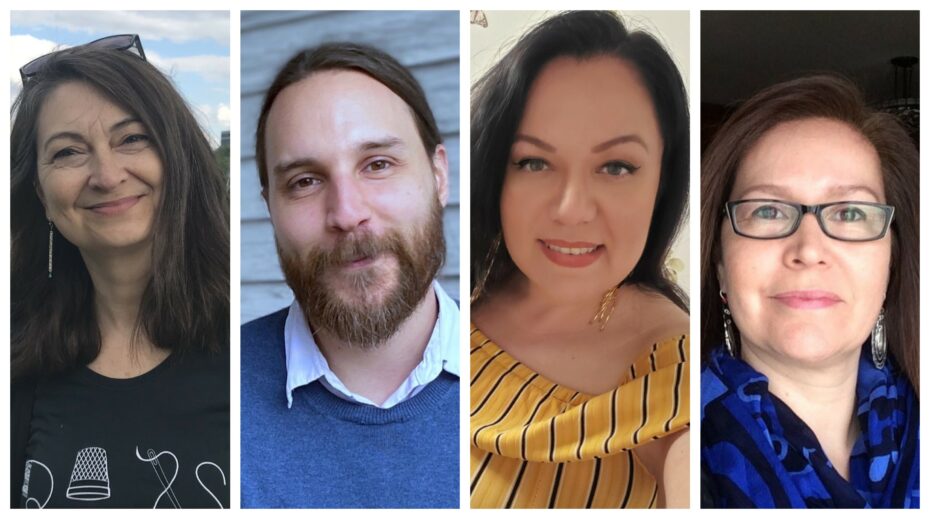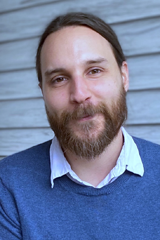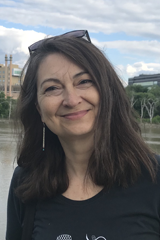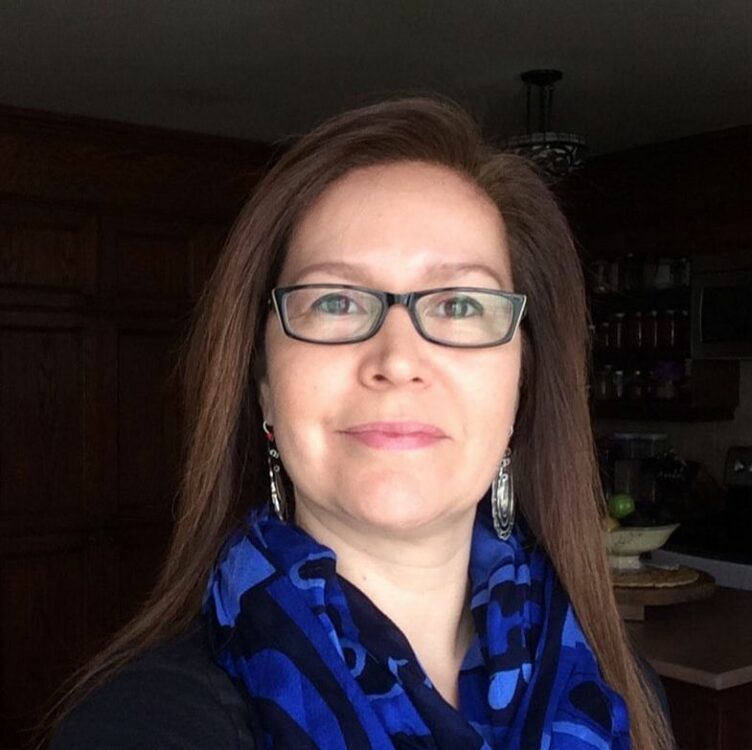
On July 15, the federal government announced the newest cohort of Vanier Canada Graduate Scholars. Of the 26 McGill Vanier recipients, two are Indigenous scholars, Jeremy Desjarlais and Michelle Smith.
With the addition of Desjarlais and Smith, the total number of Indigenous Vanier Scholars currently studying at the University has doubled. Reaching this milestone is not just happenstance, says Josephine Nalbantoglu, Associate Provost (Graduate Education) & Dean of Graduate and Postdoctoral Studies. It is the result of a concerted effort to recruit and retain Indigenous scholars, and to provide them with institutional support.
“Recruiting Indigenous students to pursue graduate studies at McGill is a big priority for us, and I have been thrilled to see an increase in the number of Indigenous applicants to our graduate programs,” says the Dean. “I am especially proud to see our Indigenous doctoral students receive Canada’s most prestigious national awards year after year. Like all Vanier Scholars, McGill’s Indigenous Vanier recipients are innovative leaders committed to expanding knowledge. The outstanding work of these four scholars in the areas of language revitalization, education, and culture showcases the research excellence McGill is known for.”
The Reporter reached out to McGill’s Indigenous Vanier Scholars to ask them about their research, the Vanier Scholarships and the importance of increasing the number of Indigenous students and researchers.
Jeremy Desjarlais (English), Vanier Canada Graduate Scholarship 2021
Title of research project: Being and Longing: The Ontology of Linguistics and Reconciliation in Indigenous and Canadian Long Poetry
- Where are you in your doctoral studies?
I started my PhD in September 2020. Come this fall, I will officially be starting my second year.
- What was your reaction when you got word that you had won a Vanier Scholarship?
Upon receiving the Vanier, I felt a great deal of disbelief, incredulity, surprise, and then absolute relief. The odds of receiving the scholarship are so low that it was difficult to comprehend actually winning the award. What followed was a tremendous sense of freedom in anticipating the following three years of study, being able to focus solely on writing and researching without the added complexity of seeking out employment.
- Can you give us a summary of your work?
 Indigenous and Canadian peoples are eager for a literature that responds to the Calls to Action of the Truth and Reconciliation Commission of Canada, as a means of validating and authenticating its recommendations. A report from the Commission unwaveringly states: “The urgent need for reconciliation runs deep in Canada” (114).
Indigenous and Canadian peoples are eager for a literature that responds to the Calls to Action of the Truth and Reconciliation Commission of Canada, as a means of validating and authenticating its recommendations. A report from the Commission unwaveringly states: “The urgent need for reconciliation runs deep in Canada” (114).
My dissertation combines Canadian long poets of Indigenous and non-Indigenous heritage – Louise Bernice Halfe, Jordan Abel, bpNichol, and Steven Ross Smith – for the purposes of examining the development and lineage of the contemporary long poem. Through the theme of reconciliation, these poets address issues of ontology and demonstrate the presence of longing through language. The length, immensity, and enormity of these vast works permit the deepest elements of being: language, expression, and the emotional aspects of existence (longing, loss, desire, compulsion). Undergirding all of these poets’ works is a longing to reconcile, on an individual, communal, and national level.
- What is your motivation in pursuing this research?
I taught for four years at the First Nations University of Canada, focusing on poetry and poetics and teaching courses devoted to both Indigenous and Canadian poets. My research and proclivities conflated both groups, and I concluded that, should both Indigenous and Canadian poetry be taught together in concert, perhaps theoretical and thematic concerns might overlap, too, in the work produced by both groups. I considered that any sort of cultural and political fissure existent between Indigenous and non-Indigenous people might find resolution in the artistic productions of these poets.
Looking for correspondent approaches in the genre of long poetry, where the enormity of the genre can proffer poets a complex and nuanced workspace, I am suggesting that combining both groups into a single study will ultimately reveal consonance and congruity between them, which has national significance to the whole of Canada.
- How important is the Vanier Scholarship to your research?
The Vanier scholarship undoubtedly provides me with financial autonomy and an external indication of the validity of my research. It simultaneously functions as a motivating attribute in the coming three years of doctoral work; I am allowed (and encouraged) to focus solely on my scholarly endeavours, without the distraction and impediment of extraneous employment vying for my focus and energy.
- Including this year’s Vanier cohort, there are now four Indigenous scholars pursuing their research at McGill. Are you heartened to see the numbers rising?
Having Indigenous students/scholars in all levels of post-secondary education is both necessary and beneficial, perhaps more so at the doctoral level. This is where book and article publishing occur, along with conference and panel work, all of which equate to a public and social showcasing of the intellectual efforts and ideas being produced. Having Indigenous scholars in a position of high-level academics makes possible the chance of lucrative scholarships like the Vanier funding work that directly benefits and cultivates the aspiring poets, thinkers, researchers of home communities of other Indigenous people.
Michelle E. Smith (Integrated Studies in Education), Vanier Canada Graduate Scholarship 2021
- Where are you in your doctoral studies?
I have just finished my first year of doctoral studies in DISE, the Department of Integrated Studies in Education. I am almost done my course work and am preparing for my candidacy papers. I am in the process of laying the groundwork for my research, in collaboration with my community partners and I’m setting up an Indigenous advisory circle.
- What was your reaction when you got word that you had won a Vanier Scholarship?
I was very excited, very surprised, extremely happy; when I read the acceptance letter my heart was beating so fast it felt like it was jumping out of my chest. I am really happy that the Vanier committee got behind me and my research. I received so much support from my supervisors, Dr. Bronwen Low and Dr. Elizabeth Fast, as well as from faculty and staff in DISE for the proposal, so I am beyond thrilled that all the hard work and collaboration led to this really wonderful outcome.
- Can you give us a summary of your work?
My research is about self-determined education and bringing post-secondary “home,” home in a literal and figurative sense. I am still working out the details with one of my community partners so I can’t share too much yet. Let’s talk again in six months!
 I will say that my PhD research will address recommendations from the First Peoples Post-Secondary Storytelling Exchange (fppse.net), a SSHRC funded collaborative research project I’ve been leading through Dawson College for the last four years. The FPPSE was about creating more responsive post-secondary education for Indigenous students and honouring Indigenous approaches to teaching and learning. Over the course of the project we heard more than a hundred stories from Inuit, First Nations and Métis students and community members about education and learning at school, college, university, in family and on the land.
I will say that my PhD research will address recommendations from the First Peoples Post-Secondary Storytelling Exchange (fppse.net), a SSHRC funded collaborative research project I’ve been leading through Dawson College for the last four years. The FPPSE was about creating more responsive post-secondary education for Indigenous students and honouring Indigenous approaches to teaching and learning. Over the course of the project we heard more than a hundred stories from Inuit, First Nations and Métis students and community members about education and learning at school, college, university, in family and on the land.
One of the urgent calls from Inuit and Cree participants in particular was for in-community post-secondary education. This is the broad topic of my PhD research. Right now, students from Nunavik and Eeyou Istchee have to travel south to pursue college and university. It’s not easy to leave your family, community, and territory and the place where you can speak your language, especially at age 17 or 18, and studying in a southern institution that has not always been that welcoming. It’s a model that is not only unsustainable but continues to cause individual and collective harm. But change is coming…
- What is your motivation in pursuing this research?
When I was an undergrad student Métis culture was pretty much invisible – even in Manitoba where I’m from and then at McGill where I transferred in my second year. That was in the 1980s. There were a lot of negative stereotypes and I didn’t have confidence in who I was to take up space and assert my identity. I was kind of lost and looking for connection. Since then I’ve been on a long journey, a healing journey, back to culture and community. Making art and telling stories has been a big part of that. I’ve been working in film and media for many years.
My research will involve collaborative filmmaking with youth. I love working with emerging filmmakers and doing hands-on mentoring, and I love film. It’s such a supple and accessible form and powerful creative tool. In my experience, film can be a pathway to culture revitalization and affirming identity – because it’s not just about the final product but the whole process of creating, engaging with community, exchanging stories and knowledge and building relationships.
My motivation for research around Indigenous educational sovereignty comes from my experience in Cégep education. I’ve been a teacher for close to 10 years, first at John Abbott now at Dawson College. At Dawson I got the Journeys First Peoples Transition Program off the ground and coordinated it for four years.
While there is really meaningful decolonizing work taking place in many Quebec colleges and universities there are still so many gaps in terms of accessible programs, safe classrooms and services, relevant curriculum as well as accommodations for Indigenous cultural practices and protocols. I don’t believe current post-secondary systems are meeting the needs and aspirations of many Indigenous learners. This is reflected in the statistics around higher education success rates.
One of my colleagues has said, “When I went to College I had to leave my Cree identity at the door.” I get this, I lived it as a Métis student with no points of reference to my lived experience and culture in post-secondary. And this resonates with many of my students today.
Cree, Inuit and other communities in Quebec control their own primary and secondary, and adult education. Many Indigenous students want sovereignty over post-secondary education too – this was a clear outcome of the FPPSE. This will mean different things for different communities but it involves creating more “at home” culturally relevant and holistic programs that teach Indigenous knowledge and practices as well as “western” skills, local knowledge as well as global awareness. I aim to contribute to one such community initiative in my research.
- How important is the Vanier Scholarship to your research?
The Vanier Scholarship is hugely important. It will allow me to dedicate my time fully to this project, which is all about collaboration and partnership. This research is essentially a co-investigation. It’s about facilitating community driven education.
- Including this year’s Vanier cohort, there are now four Indigenous scholars pursuing their research at McGill. Are you heartened to see the numbers rising?
I think it is wonderful that more Indigenous scholars’ work has been recognized with the Vanier. It is important. In the past non-Indigenous scholars studied us, studied Indigenous peoples, and there have been grave errors and negative consequences as a result. As Indigenous peoples we need to tell our own stories, determine our own research priorities and develop approaches that reflect who we are. It is important that we have institutional and agency support to do research that aligns with our values, cultural protocols and realities.
At the same time, it would be incredible to see prestigious scholarships like the Vanier awarded to elders and knowledge keepers who carry generations of knowledge – scientific, cultural, intellectual, spiritual, ecological, ethical. I believe they are the preeminent researchers; they are transmitting ancestral knowledge that has ensured our survival and is guiding us into the future.
- Anything else to add?
I look forward to meeting the other Vanier scholars – in person!
Wahéhshon Shiann Whitebean (Integrated Studies in Education), Vanier Canada Graduate Scholarship 2020
Title of research project: Multi-generational stories of Indian Day Schooling in Kahnawà:ke: Assessing impacts on Indigenous language and cultural identity transmission.
- Where are you in your doctoral studies?
I recently defended my candidacy papers (comprehensive exams) therefore I am currently a PhD Candidate. I will be A.B.D (all but dissertation) by the end of summer and starting my field research this fall. (I’m actually ahead of most of my PhD cohort in terms of completing program milestones.)
- Can you give us a summary of your research?
 My work is about Indian Day Schools in my home community, Kahnawà:ke. I want to help community members share their experiences in their own words, to better understand how these institutions impacted individuals and communities.
My work is about Indian Day Schools in my home community, Kahnawà:ke. I want to help community members share their experiences in their own words, to better understand how these institutions impacted individuals and communities.
Indian Day Schools were similar to Indian Residential Schools with the primary difference being that children returned home each day rather than living there. The goal of these schools was to erase our identities and ways of life as Onkwehón:we (Indigenous) peoples by using tactics such as forbidding children from speaking the language.
There is very little work done on Indian Day Schools, and we still know very little about these experiences. In addition to being a descendent, I am also a claimant myself in the Federal Indian Day School settlement having started my education in what was considered an Indian Day School.
- What is your motivation in pursuing this research?
I grew up in a multigenerational family with many living generations of grandparents, aunties, and uncles who told me stories about our history and community. I was close to my paternal grandma Millie. Her stories and teachings really inspired my interest in Indian Day Schools and oral history/tradition. Onkwehón:we voices are seldom heard in colonial versions of history; I want our voices to be at the center of this research.
- How important has the Vanier Scholarship been to your research?
The Vanier Scholarship funding enabled me to keep doing community work at home in language and culture revitalization and education reform. It also recognized the importance of my work which is grounded in my community and our knowledge system. I was taken aback when accomplished scholars congratulated me and said this means that I am a leading scholar in my field, and that’s hard to digest! I’m humbled and honoured to be chosen as a Vanier Scholar and grateful for the opportunity.
- Including this year’s Vanier cohort, there are now four Indigenous scholars pursuing their research at McGill. Are you heartened to see the numbers rising?
It is encouraging and motivating to see increasing Indigenous representation at McGill and I hope it sparks some much-needed changes at the University and beyond. Onkwehón:we scholars need to be recognized and supported in meaningful ways. I am excited at the unique contributions these scholars will make to academia from within their own knowledge systems and lived experiences.
- Is there anything else you would like to add?
I wish to congratulate the incoming Vanier’s and new Indigenous students. Peer-support and building a research community is important for everyone but especially for Indigenous scholars. It’s been instrumental in my success and my progress as a doctoral student and community worker, to have conversations and exchanges with people who know where you’re coming from. My advice is to reach out and build those relationships, we’re stronger when we stand together.
Iris Kahtehrón:ni Stacey (Education), Vanier Canada Graduate Scholarship 2018
Title of research project: Investigating Indigenous Language Pedagogies with Advanced Language Learners in Kahnawà:ke
- Where are you in your doctoral studies?
I have completed my comprehensive examination as well as my doctoral research proposal. I am currently preparing to present my research to my community’s new research ethics advisory at the Kahnawà:ke Education Center. This is an important step for me, as I will be working alongside second language speakers in my community to carry out my research.
- Can you give us a summary of your work?
For many Indigenous nations around the globe, Indigenous language revitalization has been in motion for decades. There are a multitude of programs, initiatives and approaches being employed by communities and new ones continue to emerge.
My doctoral research aims to build on this by furthering our understandings of Indigenous language pedagogies. Through my research, I will identify and apply teaching and learning approaches for adult language learners who have achieved advanced language proficiency. In collaboration with a group of advanced Kanien’kéha learners in my community, Kahnawà:ke, we will apply and document advanced language learning strategies that are inclusive of Onkwehón:we (Indigenous) ways of knowing.
- What is your motivation in pursing this research?
 As an Onkwehón:we researcher from Kahnawà:ke, my research focus continues to be guided by the needs of my community and nation. There are many successes to celebrate as a community and this is evident through the current need for additional resources and advanced pathways to higher levels of Kanien’kéha proficiency. My research will also create a space for me to become a language learner again, something I have put on hold for quite some time. This is important for advanced speakers, so we can pass our language on to our families and continue to speak our true language freely.
As an Onkwehón:we researcher from Kahnawà:ke, my research focus continues to be guided by the needs of my community and nation. There are many successes to celebrate as a community and this is evident through the current need for additional resources and advanced pathways to higher levels of Kanien’kéha proficiency. My research will also create a space for me to become a language learner again, something I have put on hold for quite some time. This is important for advanced speakers, so we can pass our language on to our families and continue to speak our true language freely.
Being a Haudenosaunee scholar, my goal is also to expand Onkwehón:we sovereignty and thought, to apply our collective thinking to seek out educational paths guided by the intellectual knowledge of our ancestors. This means carring out language research in ways that respect and embrace Onkwehón:we ways of knowing. I see this as important to the survival and continuance of who we are as Onkwehón:we. It is challenging and emotional work as we are resisting the devastating impacts of Indian Residential School, Indian Day School, land expropriation and the ongoing reverberations of colonization.
- How important has the Vanier Scholarship been to your research?
Being selected for the Vanier Scholarship has been an amazing expereince. I had so much encouragement and support from the Department of Integrated Studies in Education at McGill right from the start and that continued to be a source of motivation to push through my studies. I felt the scholarship brought an increased awareness of Indigenous languages revitalization and how it is deeply important to our communities. I’ve continued to be very involved in language work through teaching, advocacy and curriculum development. The scholarship also allowed me to make time for scholarly presentations, form research collaborations and focus on some key academic writing pieces.
- Including this year’s Vanier cohort, there are now four Indigenous scholars pursuing their research at McGill. Are you heartened to see the numbers rising?
I was really excited to hear of the additional Indigenous scholars at McGill who are now new Vanier Scholars. It is motivating to see the number of Indigenous scholars climbing and inspiring to see how their academic work is so closely tied to their communities. Research by us and for us, it can be an empowering tool where we seek out answers for ourselves in ways that are guided by our own unique Indigenous knowledge systems.
- Is there anything else you would like to add?
I would like to congratulate each of the current Vanier scholars and wish them a successful and fulfilling academic journey. Wa’tkwanonhwerá:ton sewakwé:kon!
